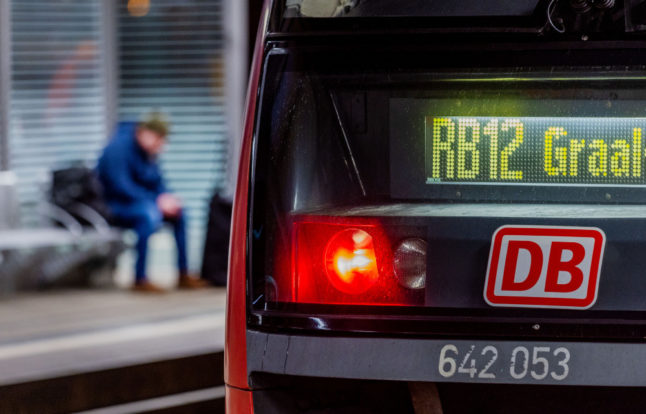The GDL train drivers’ union said the latest strike affecting passenger services would start at 2am on Tuesday and last until 2am on Wednesday.
Just like previous strikes, it will affect long-distance, regional and S-Bahn trains, all of which are run by Deutsche Bahn.
For cargo services the strike would start a few hours earlier, the union said in a statement, blaming deadlocked talks with rail operator Deutsche Bahn.
The walkout will be the union’s sixth since November and comes less than a week after a 35-hour stoppage by its train drivers caused travel misery for thousands of rail passengers.
Adding to the chaos, Lufthansa cabin crew are set to walk off the job at Frankfurt airport on Tuesday, and at Munich airport on Wednesday.
The German airline group was already hit by a two-day strike by ground staff last week, as workers press demands for higher pay.
READ ALSO: Why Germany is being hit by strikes almost every day
Europe’s largest economy has faced industrial action for months as workers and management across numerous sectors wrestle over terms amid high inflation and weak business activity.
The GDL union said Deutsche Bahn had failed to come up with an improved written offer by a Sunday evening deadline, a move that “inevitably leads to industrial action”, GDL boss Claus Weselsky said.
Deutsche Bahn had called earlier Sunday for a fresh round of talks on Monday.
“We are convinced that we will only succeed in reaching an agreement through dialogue at the negotiating table,” said Deutsche Bahn’s human resources director Martin Seiler.
As well as salary increases, the GDL union’s key demand is a reduced work week of 35 hours, down from 38 currently, at full pay.
Deutsche Bahn said it had made concessions amounting to up to 13 percent more pay, as well as the option of cutting the working week down to 37 hours starting in 2026.



 Please whitelist us to continue reading.
Please whitelist us to continue reading.
Member comments